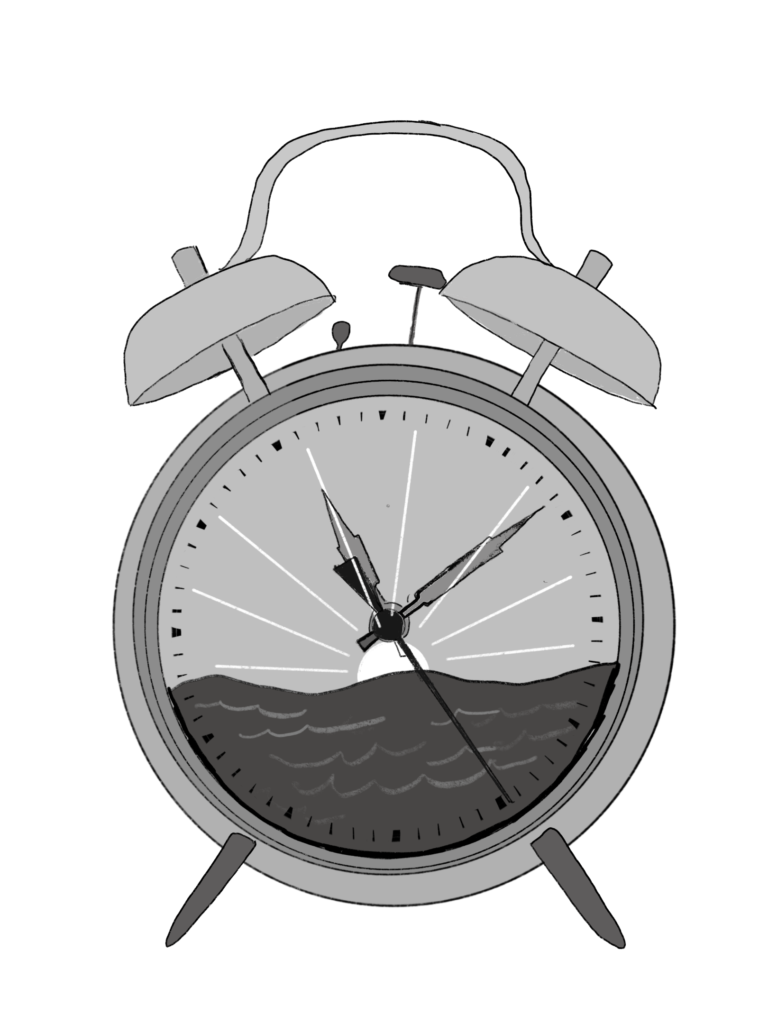Muslim students juggle fasting challenges with daily routine
Risha Chada | Staff Writer
From sunrise to sundown, Mason High School students fast for Ramadan, a yearly religious tradition of putting the greater good before one’s needs.
The Islamic tradition of Ramadan is known as a season of spiritual reflection, self-improvement and heightened devotion and worship throughout the Muslim community. The holiday serves as a way to cleanse the soul by freeing it from harmful impurities. It is a time of empathizing with the less fourtunate’s pain and suffering. Through delayed gratitude of food and other necessities, Muslims highlight their blessings in order to feel more thankful for the things that set them apart from the less fortunate.
For one month, Muslims partaking in Ramadan abstain from eating and drinking until the sun has set. Although it is not required, many students choose not to listen to music with profane language, watch television and many more activities that they feel would taint the season’s meaning. To a high school student facing tough courses and Advanced Placement (AP) exams, however, fasting can take a toll and affect their academic performance.

Junior Leila Shaikh said that refraining from food and water during the school day can make it hard to focus on what is right in front of her. Shaikh is taking multiple AP classes, and said the difficulty of taking tough classes is amplified when she cannot eat or drink during the day.
“It definitely gets tough because some
times [I’m] thinking about how many more hours until I can break my fast instead of what the Great Gatsby is talking about,” said Shaikh. “Fasting is really difficult in the beginning, but further in it does provide a sense of clarity.”
Aside from experiencing difficulty during the school day, Shaikh has struggled to find energy to study after school hours. Shakih said that her ability to stay on task and complete her assignments has become a struggle as her fast begins to compete with her attention.
“I’m dreading the fact that I have to fast during AP exams,” Shaikh said. “I stay up after the sun is down to study because when I try to [study] throughout the day I find myself either dozing off or just not focusing.”
Like Shaikh, Sophomore Hana Quraishi said that she found fasting during the day to be a challenging feat while trying to get work done. Quraishi said that getting some food in before sunrise does help her stay more alert on occasion throughout the day; however, on the days she does not, it is harder for her to keep her mind off of eating.
“Thinking about eating, or regretting not eating more, is really distracting when I’m trying to do work,” Quirashi said. “It’s not a good practice, but sometimes I can’t help thinking ‘I’m so hungry right now I can’t wait until eight o’clock.’”

While Junior Humza Asgher does find that fasting makes focusing on academics is difficult, his challenges start once he gets home from school. As Asgher has the last lunch of the school day followed by a lab bell, he said that having to return home and study is more demanding than refraining from eating during the school day.
“It hits you the hardest [when you get home] because at that point you’re much farther into the fast,” Asgher said. “The hunger and thirst really impacts you when you want to study or do something [towards] the end of the day.”
As a junior, Shaikh also has to face the additional stress of taking lengthy, arduous exams such as the ACT and AP exams. Shaikh said that the tests in general are draining, and once the factor of fasting is introduced, another level of difficulty is placed on her shoulders.
“When it comes to taking [long] tests like the ACT and AP exam and you aren’t able to eat breakfast or drink water, it gets frustrating,” Shaikh said. “You have a disadvantage compared to other students [who can eat] and you’re trying to score the highest that you possibly can because it will impact your future.”
Aside from academics, fasting impacts all aspects of life—especially sports. Quraishi used to play club basketball during Ramadan and said that playing without food or water took a toll on her body, making the sport much more difficult.
“I couldn’t drink any water when we had timeouts, so I would just put ice packs on my neck or on my head to try and keep myself cool,” Quraishi said. “It was pretty rough because I couldn’t even eat right after the game; I would just come home, shower, and wait to eat.”
Similar to Quraishi, Shaikh participated in track and recreational basketball while fasting during her sophomore year. Shaikh said that being unable to re-energize by eating or drinking affected her performance on the court.
“With basketball, [I had] to move around on the court constantly and be super attentive and maintain my strength while guarding someone,” Shaikh said. “I tried to give off that same performance that I usually would, with the restriction of not being able to drink water.”
Although fasting has its challenges, it provides a sense of social and moral betterment to many Muslims. While Asgher understands how tough it is to balance fasting with daily life, he said that it helps him to gain a better sense of compassion towards others.
“Less fortunate people may not have any food or water for a considerable amount of time and [through fasting] I can put myself in their shoes,” Asgher said. “Fasting gives you a lot more sympathy and respect for [the less fortunate], and it also allows you to empathize with them more.”
For Quraishi, Ramadan is an opportunity for her to improve herself and serves as a way for her to instill good habits. While fasting, Quraishi works directly with food and is in constant interaction with customers buying and eating food, which she said has given her a new perspective on how the less fortunate feel.
“I’m always thinking like, ‘wow’, this is how people who can’t afford this type of food feel when they’re watching everyone else around them eat,” Quraishi said. “I’m able to improve on things that during this time that I wouldn’t really make time for the rest of the year. With my sister, for example, I try to control myself and not get as irritated [with her].”
Fasting during Ramadan provides Muslims with a new level of empathy aligned with the less fortunate. Shaikh, who has been fasting since she was four, said that fasting gives her discipline, a skill she knows will be helpful to her now, and later in life.
“My sense of discipline and self accountability has been instilled from a young age” Shaikh said. “As I grow older and am faced with societal pressures or peer pressure, being able to say ‘no’ to certain things people ask of me is a benefit that many people overlook.”
Graphic by Rachel Cai
